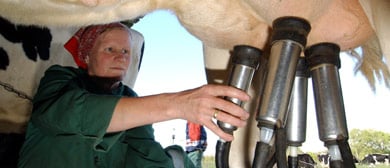The two percent production hike would bring an extra 2.84 million tonnes of milk onto the market from next month, with the increased production fairly split between the 27 EU member states.
The decision is part of a larger plan to scrap the milk subsidies, introduced in 1984 in the days when surplus production gave rise to the infamous European butter mountains and milk lakes, by 2015. A minority of member states led by Germany, the biggest milk producer in the bloc, opposed the move while France abstained in the decision. The European Commission pointed out that milk prices rose an average of 8.1 percent in the European Union last year, although they have subsequently slipped back.
EU Agriculture Commissioner Mariann Fischer Boel said research showed that “the market can absorb more” milk production. She described the increased purchasing power in China and India as great opportunities for the European dairy market, not least for European cheeses with their “excellent reputation.”
“If high quality EU products do not show up from the the very beginning” in those very important markets, “it will be very difficult to came back at a later stage,” she warned.
Berlin stressed that milk prices had dropped sharply since their peaks last autumn and that a production hike would encourage a larger fall in prices and risk the livelihoods of some producers.
“A production hike in the current conditions is counter-productive,” German Agriculture Minister Horst Seehofer told reporters. Powdered milk prices are down 40 percent and those of butter down 35 percent from their highs last autumn. Quota increases could therefore put further pressure on the most vulnerable producers, located in mountainous areas, who cannot switch to non-dairy production, the German minister argued.
“I don’t want to see new milk lakes and butter mountains,” he said. He published a joint declaration with his French counterpart Michel Barnier stressing the need to protect the milk industry. “I can understand a very modest increase in quotas this year because the demand is there,” said Barnier. But he added: “I would warn against any decision that could have significant consequences in the future.”


 Please whitelist us to continue reading.
Please whitelist us to continue reading.